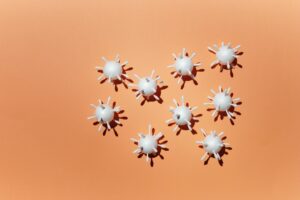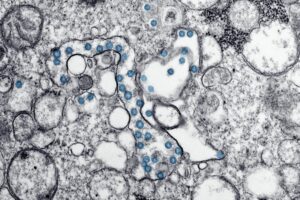Clear Skin Guide: Powerful Acne Treatments for a Smooth Complexion
Acne affects millions worldwide, causing frustration and a wish for clear skin. Luckily, many treatments can help. This article will cover the causes of acne, discuss over-the-counter and prescription options, and offer expert advice for managing acne and boosting confidence.

Key Takeaways
- Understand the root causes of acne, including hormonal imbalances and bacterial overgrowth.
- Discover effective over-the-counter treatments that can help clear up breakouts.
- Explore prescription medications and therapies that target acne at a deeper level.
- Learn how to develop a tailored skincare routine to address your specific acne concerns.
- Gain insights from leading dermatologists on the most reliable acne management strategies.
Understanding Acne: Causes and Types
Acne is a common skin issue that affects many people around the world. To tackle it, we need to know what causes it and the various types. Hormonal changes and bacterial growth are the main causes of acne.
Hormonal Imbalances and Acne
Hormonal shifts, especially in androgens like testosterone, can make the skin produce more oil. This oil, along with dead skin cells, can block pores. This blockage lets acne-causing bacteria grow, leading to breakouts on the chin, jaw, and cheeks.
Bacterial Overgrowth and Acne
Bacteria like Propionibacterium acnes also play a big role in acne. They cause inflammation and lead to red, painful pimples. This type of acne shows up as blackheads, whiteheads, and inflamed spots on the face, chest, and back.
Knowing what causes acne helps us find the right treatments. By dealing with these causes, people can work towards clearer, healthier skin.
“Acne is a reflection of our internal health, and treating it requires a holistic approach.”
Over-the-Counter Acne Treatments
OTC treatments are a great choice for managing acne. They offer many effective solutions to fight blemishes and clear pores. This makes your skin look clearer and healthier.
Benzoyl peroxide is a top choice for acne. It kills bacteria that cause acne and dries out pimples. You can find acne creams and gels with different strengths to fit your skin’s needs.
Salicylic acid is another popular treatment. It clears pores by removing dead skin and oil. Acne spot treatments with salicylic acid work well on single blemishes.
If you prefer natural options, try sulfur-based acne medications. Sulfur dries out pimples and reduces swelling. It’s good for many types of acne.
Start with low concentrations of these treatments and slowly increase as needed. Use them with a good cleansing and moisturizing routine. This can lead to a clear, glowing complexion.

“The key to successful OTC acne treatment is finding the right combination of products that work best for your unique skin type and needs.”
While OTC treatments work well, some acne needs a dermatologist’s help. Prescription-strength treatments might be needed for severe cases. Knowing about OTC options is a good first step to clearer skin.
Prescription Acne Medications and Therapies
For those with stubborn or severe acne, dermatologists can offer solutions. Prescription acne treatments and medications are stronger than what you can buy over the counter. They target the deep causes of acne with specific therapies.
Topical Retinoids for Acne
Retinoids for acne, like tretinoin and adapalene, are key in dermatologist-recommended acne therapies. These strong compounds clear pores, reduce swelling and help skin cells renew. Using these prescription acne treatments regularly can greatly improve your skin.
Oral Antibiotics and Acne
Oral antibiotics can change the game for moderate to severe acne. They fight the bacteria that cause acne, lessen swelling, and stop new breakouts. When combined with other prescription acne treatments, they offer a full solution for tough acne.
While over-the-counter products help with mild acne, seeing a dermatologist for prescription acne treatments and acne medication might be what you need for clear, glowing skin.

Conclusion
In this article, we looked at many ways to treat acne and get clearer skin. We talked about the causes of acne, like hormonal changes and too many bacteria. Now, readers know more about why acne happens.
We covered everything from over-the-counter products to stronger prescription treatments. This gives readers the tools to make a plan for their acne. They can use OTC products or get advice from a doctor to improve their skin.
This article focused on acne treatment summary, clear skin tips, healthy skin, acne management, and skin health. It aims to guide readers through the complex world of acne treatments. With this knowledge, they can work towards having clear, glowing skin.
FAQ
What are the main causes of acne?
Hormonal changes and bacterial growth are key causes of acne. Fluctuations in hormones and an overgrowth of bacteria like Propionibacterium acnes can clog pores and cause inflammation.
What are the different types of acne?
Acne comes in many forms, like blackheads, whiteheads, and cysts. The type and severity depend on the cause and your skin type.
How can over-the-counter (OTC) acne treatments help clear skin?
OTC treatments, with ingredients like benzoyl peroxide and salicylic acid, can fight bacteria and clear pores. They help manage mild to moderate acne by drying out blemishes.
What are the benefits of using prescription acne medications?
Prescription treatments, including retinoids and antibiotics, work better for severe acne. They unclog pores, reduce inflammation, and fight bacteria.
How can I develop an effective acne management routine?
Start by understanding your acne’s causes. Then, mix OTC and prescription treatments as needed. A dermatologist can help create a plan for clearer skin.




